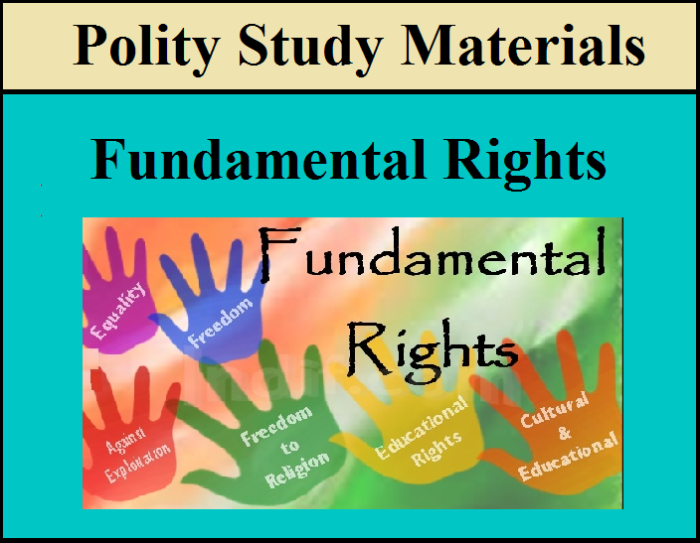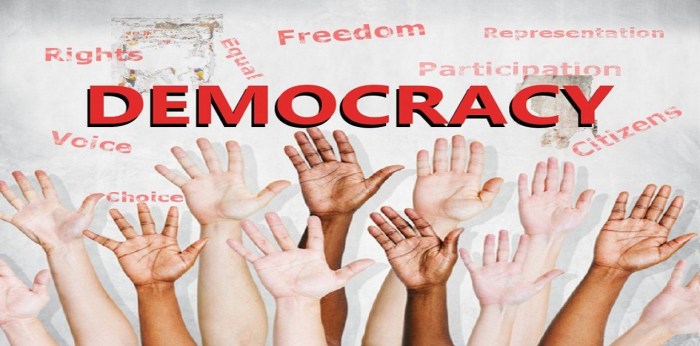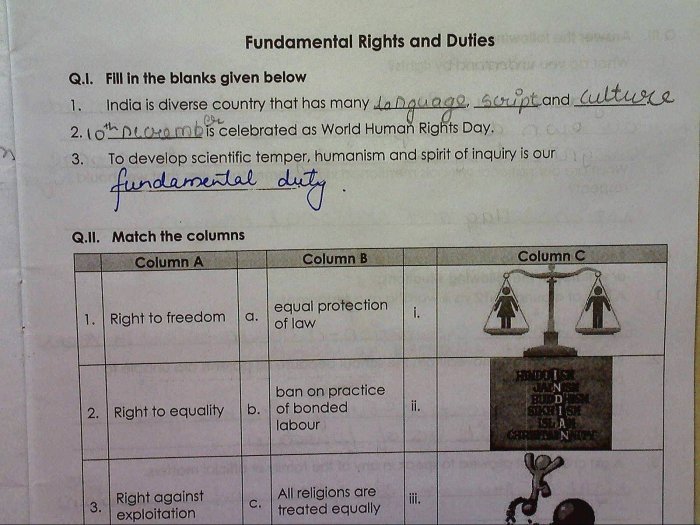Embark on an enlightening journey with our comprehensive fundamental rights in a democracy worksheet answers, meticulously crafted to enhance your comprehension of this pivotal topic. This guide delves into the essence of fundamental rights, their legal protections, and the delicate balance between these rights and other societal interests.
Our exploration unravels the crucial role of civil society in safeguarding fundamental rights, while also examining the challenges posed by the 21st century. Through real-world examples and expert insights, we provide a nuanced understanding of how democracies worldwide are navigating these challenges to ensure the enduring protection of these fundamental pillars of society.
Fundamental Rights in a Democracy: Fundamental Rights In A Democracy Worksheet Answers

Fundamental rights are the basic and essential rights that all citizens in a democracy are entitled to. They are essential for the proper functioning of a democratic society and ensure the protection of individual freedoms and dignity.
These rights include the right to life, liberty, freedom of expression, and the right to a fair trial. They are enshrined in the constitution and other legal documents and are protected by the courts.
Legal Protections for Fundamental Rights
The legal mechanisms that protect fundamental rights in a democracy include the constitution, which is the supreme law of the land, and other laws that are passed by the legislature.
The courts play a crucial role in enforcing these rights. They can declare laws that violate fundamental rights to be unconstitutional and can order the government to take steps to protect these rights.
However, the government does have the power to restrict fundamental rights in certain circumstances, such as to protect national security or public safety.
Balancing Fundamental Rights with Other Interests
Fundamental rights are not absolute and must sometimes be balanced against other important societal interests, such as public safety and national security.
Democracies have taken different approaches to striking this balance. Some countries have adopted a more restrictive approach, while others have taken a more liberal approach.
For example, some countries have passed laws that restrict freedom of speech in order to protect national security, while other countries have taken a more hands-off approach, allowing for a wider range of expression.
The Role of Civil Society in Protecting Fundamental Rights
Civil society organizations play a vital role in promoting and protecting fundamental rights.
These organizations can raise awareness about human rights issues, lobby the government to pass laws that protect these rights, and provide legal assistance to victims of human rights violations.
For example, the American Civil Liberties Union (ACLU) is a non-profit organization that has been fighting for civil rights and liberties since 1920.
Challenges to Fundamental Rights in the 21st Century, Fundamental rights in a democracy worksheet answers
Fundamental rights are facing new challenges in the 21st century, such as the rise of new technologies and the increasing power of corporations.
For example, the internet has made it easier for governments to track and monitor their citizens, and corporations have become increasingly powerful, which has raised concerns about their influence on public policy.
However, democracies around the world are taking steps to address these challenges and protect fundamental rights.
FAQ Compilation
What are fundamental rights?
Fundamental rights are inherent and inalienable rights that are essential for human dignity and well-being, such as the right to life, liberty, and freedom of expression.
How are fundamental rights protected in a democracy?
In democracies, fundamental rights are typically enshrined in constitutions and protected through legal mechanisms such as independent courts and human rights commissions.
Can fundamental rights be limited?
Yes, fundamental rights can be limited in certain circumstances, such as to protect public safety or national security, but such limitations must be proportionate and necessary.


